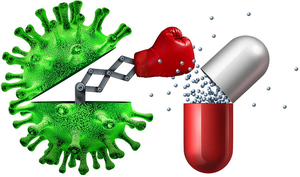New Delhi, 13 April (IANS). According to a new international study, in 2022, more than 3 million children worldwide died due to infections on which antibiotics could not affect. This condition is called antimicrobial resistance (AMR).
The study was introduced during the ‘ESCMID Global 2025’ program in the city of Vienna, Austria. It raised concerns about this serious problem in treating children in areas like South-East Asia and Africa.
When the bacteria that spread infections in the body stop reacting to antibiotics, then that condition is called AMR. This is especially dangerous for children because their immunity is low and new medicines are not available for them quickly.
In 2022, 7.5 lakh children died in Southeast Asia alone and about 6.6 lakh children in Africa died due to complications related to AMR.
Researchers say that antibiotics with ‘Watch and Reserve’ are not for initial treatment.
In many cases ‘Watch’ and ‘Reserve’ category antibiotics were used, which are usually kept for severe and special cases. According to the researchers, they should not be given for treatment initially. They should be used only for those people who are really needed, so that these medicines remain effective and do not increase immunity against them in bacteria.
In contrast, antibiotics with ‘access’ are easily found and are used to treat common infections as they reduce the risk of increasing immunity in bacteria.
Between 2019 and 2021, the use of ‘Watch’ drugs increased by 160% in South-East Asia and 126% in Africa. Meanwhile, the use of ‘reserve’ drugs also increased 45% and 125% respectively.
Worldwide, out of the deaths of 3 million children, 20 lakh deaths were associated with the use of these two types of drugs.
Professor Joseph Harvel, who is co-authors in this study, says-“Excessive use of these drugs, especially without correct monitoring, can become a big threat to the future. If the bacteria stop affecting these drugs also, we will have very few options for treatment.”
This problem is even higher in poor and developing countries because there are easily spreading bacteria due to congestion in hospitals, lack of cleanliness, and lack of measures to prevent infection. In addition, the system of monitoring the effects of drugs in these countries and controlling their use is also very weak.
To deal with this problem, there is a need to work fast at the global and regional levels, otherwise the treatment is expected to fail and increase the number of deaths.
-IANS
AS/






